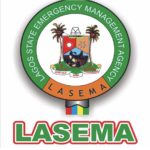Findings by the Nigerian Tribune have revealed how insecurity and COVID-19 pandemic killed most Free Trade Zones (FTZ) in some parts of Nigeria.
Recall that the Nigeria Customs Service (NCS), in its half-year report for year 2022 said that of the 42 Free Trade zones in Nigeria, only 25 are active, with 15 of them operating in Zone ‘A’, 4 in Zone ‘B’, 5 in Zone ‘C’ and 1 in Zone ‘D’.
Under Customs administration, Zone D falls under territories in Bauchi, Gombe, Borno, Yobe, Adamawa, Taraba, Benue, Plateau and Nasarawa States.
Speaking with the Nigerian Tribune at the weekend, a source in the NCS who wouldn’t want his name in print as he is not authorized to talk explained that insecurity has been a major problem for Free Trade Zones in Zone D.
“Free Trade Zones in Zone D have had to struggle with the prevalence of insecurity around that area. You will agree that for States in that zone, some of them have been worst hit when we are talking of impact of insecurity in tbe country.
“And this is a major reason why we currently have only one FTZ in that area that is functioning. Even that one is struggling. It is when there is peace in this area that businesses can thrive.
“Before, we used to have about five FTZ’s in Zone D. All of them have closed down due to insecurity except for one that at the moment, is struggling to operate.
“The South West (Zone A) has the largest concentration of Free Trade Zones because it has experienced relative peace better than some other zones in the country. The South West alone has 15 FTZ’s that are all thriving. If only relative peace can return to Zone D, then the numbers of FTZ’s can improve.
“Many of the FTZ’s closed down at the height of insurgency in the area,” the Customs source told Nigerian Tribune exclusively.
Also speaking on the impact of COVID-19 on FTZ’s in Nigeria, the Managing Director of the Nigeria Export Processing Zones Authority (NEPZA), Professor Adesoji Adesugba explained that the pandemic is a major reason why many Free Trade Zones registered have been rendered inactive.
ALSO READ FROM NIGERIAN TRIBUNE
Also speaking with the Nigerian Tribune at the weekend, Professor Adesugba explained that the impact of COVID-19 was devastating on most businesses during the advent of the pandemic.
According to Professor Adesugba, “First of all, the impact of the COVID-19 pandemic was devastating on businesses. Most of the businesses in the inactive FTZ’s went down due to this.
“Also, prior to that, there was a global economic meltdown that also impacted on businesses globally. The dire situation wasn’t peculiar to Nigeria alone. Global businesses were also affected.
“So, for some businesses in some of our FTZ’s, many became inactive due to this. Don’t forget that this were foreign investment. They depended on funding to thrive, and this wasn’t forthcoming as expected due to the ravaging COVID-19 pandemic.
“It’s a major problem that most businesses had during the COVID-19 pandemic. Many became inactive. When the business environment is harsh globally, sourcing investment funds becomes difficult.
“But I can tell you that new Free Zones have started coming on board. I don’t have the statistics now, but with improvement in the global. Business climate, we have started registering new Free Zones.”
Free Trade Zones are special economic zones which, aside providing employment opportunities locally, engender the transfer of technology, help build local capacity, provide viable market for other local producers of raw materials and increase the quality of goods which can potentially be available in the local market on the payment of relevant duties and taxes.






